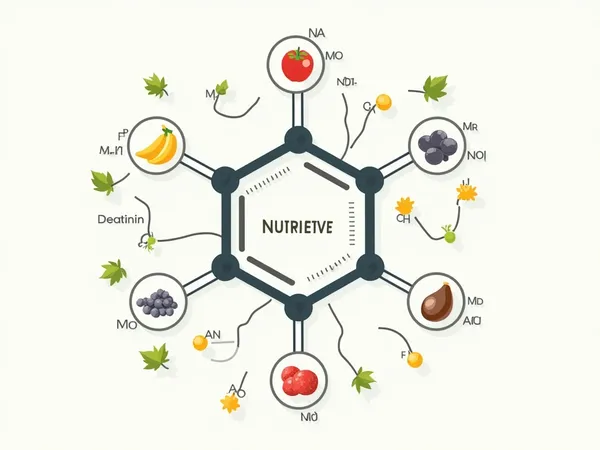
Ready to Start Your Wellness Journey?
Become a Herbalife Preferred Member and enjoy exclusive discounts of up to 25% on all products.
BECOME A PREFERRED MEMBERPhosphatidylcholine Science: Understanding Brain and Liver Health
Disclaimer: This article is for informational purposes only and should not be considered medical advice. Always consult a healthcare professional or a registered dietitian before making significant changes to your diet or starting any supplementation.
Introduction
Phosphatidylcholine is a phospholipid and a major component of cell membranes throughout the human body. It participates in lipid transport, cell signaling, and membrane structure. Understanding phosphatidylcholine’s roles can help inform dietary and lifestyle choices to support overall health.
Role in the Body
Specific Functions
Phosphatidylcholine contributes to multiple biological processes:
• Membrane Structure and Fluidity: It is a key constituent of cell membranes, helping to maintain their integrity and flexibility for nutrient exchange and cell communication.
• Lipid Transport: As a component of lipoproteins such as HDL (high-density lipoprotein), it is involved in the normal transport of fats and cholesterol through the bloodstream.
• Neurotransmitter Precursor: The choline moiety can be used to synthesize acetylcholine, a neurotransmitter associated with memory, learning, and muscle function.
• Methylation Reactions: Choline contributes methyl groups in metabolic pathways, which are important for gene expression and detoxification processes.
Effects of Deficiency
Inadequate choline intake may be associated with:
• Elevated Liver Fat: Low choline intake can impair normal lipid export from the liver, which in some studies has been linked to increased liver fat accumulation.
• Potential Cognitive Impact: Insufficient choline may limit acetylcholine synthesis, which is necessary for normal cognitive and neuromuscular function.
• Altered Methylation Capacity: Reduced availability of methyl donors may affect processes that rely on methylation, including homocysteine metabolism.
Dietary Sources
Best Food Sources
Phosphatidylcholine is found in foods rich in choline and healthy fats:
• Egg yolks – Approximately 115 mg of choline per large yolk.
• Organ meats (liver) – Around 400 mg of choline per 100 g of beef liver.
• Soybeans and soy products (tofu, tempeh) – 50–100 mg of choline per serving.
• Fish and shellfish (salmon, cod, shrimp) – Provide choline along with high-quality protein.
• Nuts and seeds (sunflower seeds) – About 55 mg of choline per ¼ cup.
• Cruciferous vegetables (broccoli) – Approximately 60 mg of choline per cup (cooked).
• Dairy products (milk, yogurt) – Moderate amounts of choline per serving.
Supplementation
While a balanced diet is the preferred source of phosphatidylcholine, supplementation may be considered when dietary intake is insufficient:
• Individuals following restrictive plant-based diets.
• Those with increased choline requirements (e.g., pregnancy).
• Certain clinical settings under medical supervision (e.g., some liver conditions).
Health Benefits
Research has explored the following areas:
• Liver Health: Some clinical trials have examined choline supplementation for reducing liver fat in nonalcoholic fatty liver disease, with mixed results.
• Cognitive Function: Studies on citicoline (CDP-choline) suggest potential support for attention and memory in older adults; results vary by population and dosage.
• Lipid Metabolism: Phosphatidylcholine supports normal lipoprotein structure and function, contributing to regular fat transport mechanisms.
Daily Requirements
Although there is no specific Recommended Dietary Allowance (RDA) for phosphatidylcholine itself, Adequate Intake (AI) levels for total choline are established by health authorities:
• Adult men: 550 mg of total choline per day.
• Adult women: 425 mg per day.
• Pregnant women: 450 mg per day.
• Breastfeeding women: 550 mg per day.
• Children and adolescents: 125–550 mg per day, depending on age and sex.
Tips for Incorporation
Practical ways to include choline-rich foods in your diet:
• Start with Eggs: Prepare omelets or boiled eggs for breakfast.
• Snack on Seeds: Keep sunflower seeds or pumpkin seeds on hand.
• Use Organ Meats: Include small portions of liver in stews or pâté.
• Include Soy Products: Add tofu or edamame to salads and stir-fries.
• Eat Seafood Regularly: Incorporate fish like salmon or cod twice a week.
• Add Vegetables: Blend broccoli or Brussels sprouts into soups and sauces.
• Check Fortified Foods: Some cereals and milk alternatives are fortified with choline—review labels for content.
Conclusion & Call to Action
Phosphatidylcholine is an important component of cell membranes and a source of choline for physiological processes. A varied diet that includes choline-rich foods can help meet established intake recommendations. Consult a healthcare professional for personalized advice on diet or supplementation to support your nutritional needs.
Ready to Start Your Wellness Journey?
Become a Herbalife Preferred Member and enjoy exclusive discounts of up to 25% on all products.
BECOME A PREFERRED MEMBER